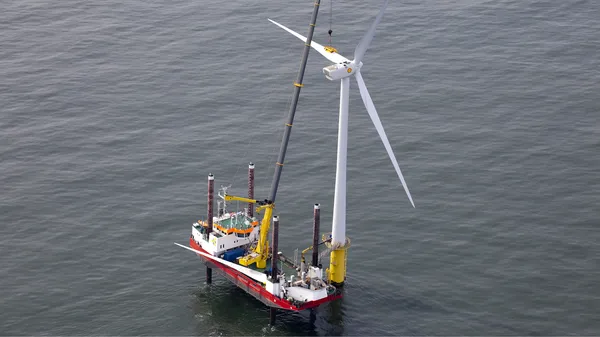Green Fintech: How sustainable solutions are attracting investments
As the fintech industry focuses on sustainability efforts in 2025, Indian green fintech startups are innovating solutions to protect the environment while enhancing financial inclusivity are in the investor spotlight.


Climate change is increasingly seen as the most pressing problem that our society faces today, as it poses an existential threat to our human, biodiversity, and physical environment. According to the World Economic Forum, it is estimated that the world’s economic output could shrink by 12% for every 1°C of global warming, underscoring the need for urgent climate mitigation measures.
It is now widely accepted that global emissions will need to halved by 2030, and net emissions will have to be zero by 2050 for us to have a chance to avoid a world which is more than 1.5 degrees warmer than pre-industrial level, according to The Intergovernmental Panel on Climate Change (IPCC).
As India doubles down on its commitment to realise net-zero carbon dioxide emissions by 2070, the country’s fintech ecosystem is playing a crucial role in promoting and achieving environmental sustainability.
Climate finance will play a key role in combating climate change, as it is needed to both curtail further carbon emissions and help communities and economies adapt to the changes that are now inevitable.
Climate finance enables various climate positive actions - from financing green energy solutions to protecting farmers through crop insurance. Hundreds of green fintech startups in India are not only introducing environment-friendly financial products and services, but also pioneering solutions in the green financing domain to raise capital for clean energy investments.
As a result, investors across the globe are keenly scouting for investment opportunities in India’s green fintech space, looking to invest in startups that are pushing the boundaries of innovation. For example, Startups such as ‘Stepchange’, which focuses on environmental, social and ESG reporting and sustainability management in the BFSI industry, as well as ‘Vidyut’, which provides Battery-as-a-Service (BaaS) electric vehicle financing, making ownership more affordable while reducing risk for buyers and lenders.
Helping India achieve ESG and climate goals
According to National Bank for Agriculture and Rural Development (NABARD), India needs an estimated $2.5 trillion in green finance by 2030 to achieve its Nationally Determined Contributions (NDCs) under the Paris agreement, with less than 20% of the current investments coming in from international finance sources. This underscores the need for raising capital for strategic renewable and clean energy projects from domestic sources, while also supporting digital banking initiatives that can coalesce greater public participation.
Towards this end, Indian green fintech startups have been addressing systemic challenges and are empowering institutions to channel investments towards projects that can combat climate change. In fact, by leveraging technologies such as Blockchain, Artificial Intelligence (AI) and Big Data analytics, a number of these startups are introducing alternative financing mechanisms to raise capital for India’s burgeoning green economy.
Similarly, green fintech solutions are enabling banks to introduce green financial products that are designed to incentivize consumers who are adopting energy-efficient technologies and infrastructure. Thus, the green fintech segment is playing a pivotal role in shoring up India’s clean energy credentials, advancing sustainable banking practices and promoting a greener Indian economy.
Attracting global investor interest
By integrating environmental objectives into financial mechanisms, Indian green fintech startups have been creating scalable and sustainable finance models for a wide range of industries. This has facilitated the rise of green lending and investing platforms that offer business loans for green technology adoption and ESG-themed investment opportunities for Indian retail investors. What’s more, leading startups have been introducing asset monitoring services, AI-powered emission management, supply chain financing and have even established exclusive B2B marketplaces for green equipment procurement and carbon trading.
Thus, in addition to playing a pivotal role in rapidly expanding the country’s green economy, these startups are employing data-driven underwriting processes to fortify risk management and ensure sustainable growth. Recognizing the fact that India is amongst the fastest growing fintech markets across the globe, investors are increasingly allocating capital towards domestic green fintech startups that are building scalability and tech-driven financial robustness into their future ready platforms.
Addressing challenges with innovation
While the Indian government has been supporting green investments through flagship policies such as the National Solar Mission (NSM) and India’s National Action Plan for Climate Chance (NAPCC), India’s green fintech segment will play a leading role in amassing private equity for green projects, as well as ESG investments. On their part, startups are embedding advanced technologies to level up their internal offerings as they deal with regulatory complexities and greenwashing risks. With the country’s overall fintech market expected to grow at a CAGR of 31% over the next five years, as per NPCI, investment opportunities within the still nascent green fintech space could potentially offer investors even greater returns over the next decade.
(Harsh Gupta is Principal India, Flourish Ventures)
(Disclaimer: The views and opinions expressed in this article are those of the author and do not necessarily reflect the views of YourStory.)






































































































































































![[The AI Show Episode 145]: OpenAI Releases o3 and o4-mini, AI Is Causing “Quiet Layoffs,” Executive Order on Youth AI Education & GPT-4o’s Controversial Update](https://www.marketingaiinstitute.com/hubfs/ep%20145%20cover.png)











































































































































































































































































































































































![Chrome 136 tones down some Dynamic Color on Android [U]](https://i0.wp.com/9to5google.com/wp-content/uploads/sites/4/2023/03/google-chrome-logo-4.jpg?resize=1200%2C628&quality=82&strip=all&ssl=1)














![Apple Shares Official Teaser for 'Highest 2 Lowest' Starring Denzel Washington [Video]](https://www.iclarified.com/images/news/97221/97221/97221-640.jpg)

![Under-Display Face ID Coming to iPhone 18 Pro and Pro Max [Rumor]](https://www.iclarified.com/images/news/97215/97215/97215-640.jpg)







































































































